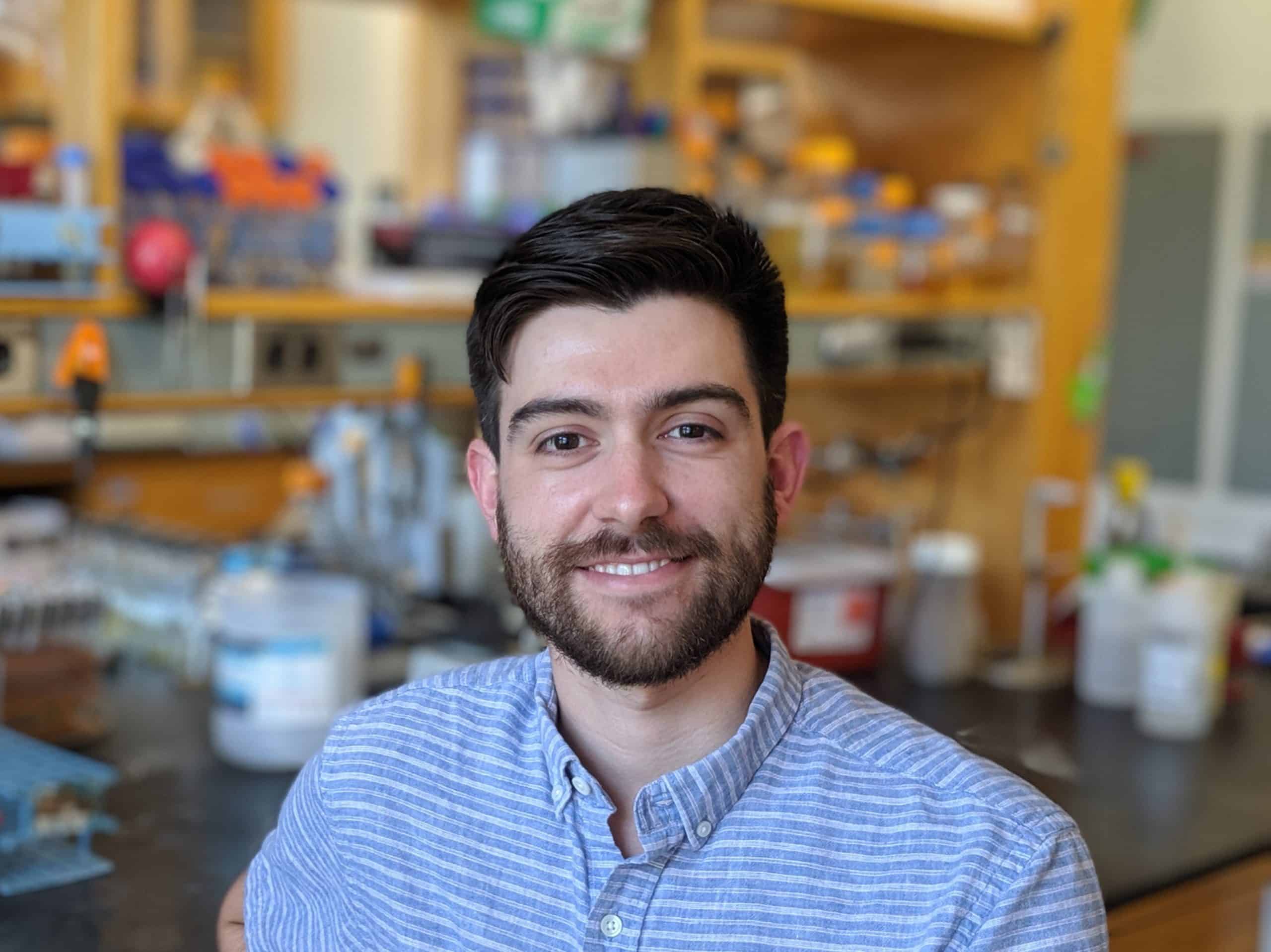Dr. Martin’s research focuses on how immune cells migrate through our tissues. Neutrophils are immune cells that exit the blood stream and move toward inflamed tissues to kill pathogens. However, when they migrate to tumors, neutrophils are also potent drivers of cancer progression. Neutrophils aid the formation of new blood vessels that carry nutrients to tumors and spread metastatic cancer cells through circulation. In the proposed research, Dr. Martin will investigate how neutrophils use the geometry of their 3D environment to propel their movement. A deeper understanding of how neutrophils move through the body may provide new strategies to interfere with their motion toward tumors and thereby limit the progression of cancer.
We understand how cells crawl across flat surfaces, but in the body, cells move in 3D. To navigate through tissues a cell must reach out and pull on objects of different shapes. Currently, it is unknown how neutrophils use the shape of objects in their environment to pull themselves forward. Dr. Martin’s work suggests that Wiskott-Aldrich syndrome protein (WASP) is important for this task. WASP wraps around the shapes of surfaces much like the hand of a rock climber wraps around a rock. Dr. Martin is making artificial 3D surfaces and using microscopes to see how neutrophils use these WASP “hands” to pull themselves forward. This shape-based facet of cell movement may present an exciting opportunity to further our understanding of how cells interact with their physical environment while also uncovering potential targets for cancer therapy.
Projects and Grants
The molecular basis for cell steering in 3D environments
University of California, San Francisco | All Cancers | 2023 | Orion Weiner, PhD

